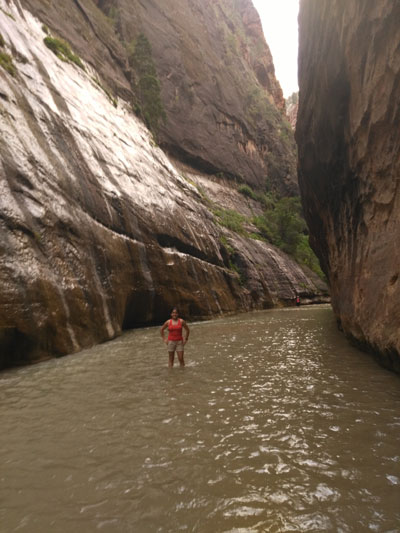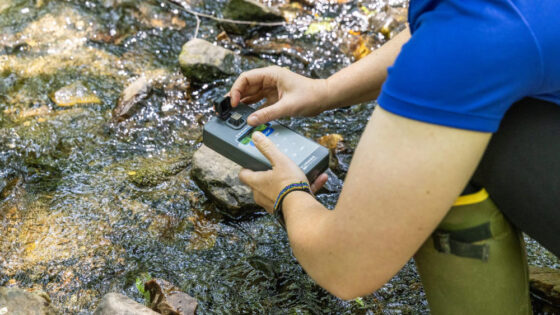Stroud Water Research Center’s newest scientist, Diana Oviedo-Vargas, Ph.D., grew up in a rural town in the Costa Rican Central Valley. She attended the local elementary and high schools, and then the University of Costa Rica in San Jose City. It’s a country, she says, “where water is abundant and springs provide high-quality drinking water for most of the population. This has made the resource underappreciated and taken very much for granted, leading to serious contamination issues of ground and surface waters. This has always been a driver for my interest in aquatic ecosystems and the environment.”
Oviedo received her Bachelor of Science in chemistry in 2007 and came to the United States in 2008 to attend Indiana University, where she earned a Ph.D. in environmental sciences.
“I received an education that made me appreciate nature and be aware of environmental problems since very early on,” she says. The United States and Costa Rica have very different policies and practices about water resources, and Oviedo says that having lived in both countries has provided her “a deeper understanding of the role of culture, education, and society in environmental conservation.”
After earning her Ph.D., Oviedo worked as a postdoctoral researcher at the Marine Earth and Atmospheric Sciences at North Carolina State University for four years.
“I learned about Stroud Water Research Center very soon after I started doing my Ph.D. I knew it as that remarkable and prestigious institution with some of the most influential researchers in stream ecology and biogeochemistry,” but she confesses a dream job at such a place felt out of reach — at least at first. Academic mentors, hard work, and postdoctoral research that refined her interests and skills in the field of biogeochemistry helped make the dream a reality.
“As a Costa Rican, I was drawn in by the fact that Stroud Center researchers maintained a field station in Costa Rica and carried out a variety of research projects there, and in other places in Costa Rica. That felt like an open channel to continue to conduct research in my home country, and to continue to develop collaborations with Costa Rican scientists.”
Today, Oviedo is an assistant research scientist and the new principal investigator for the Watershed Biogeochemistry Group. “I want my work here to be meaningful and transformative, not only for the discipline of biogeochemistry, but in general for water science and water resources. I hope to form strong collaborations with other researchers at the Stroud Center to conduct multidisciplinary research. Having great and productive teaching and restoration groups here is a unique opportunity to conduct research that has a direct impact on education and stream and watershed improvement; and I plan to take advantage of this opportunity to the maximum,” she says. You can read more about her research interests on her profile page.
Meet Our New Educators
Four experienced environmental educators joined our staff in 2017 to share freshwater science and stewardship with the thousands of students, teachers, Boy Scouts and Girl Scouts, and other citizens who visit the Stroud Center each year.
The Stroud Center welcomes Rob Conti-D’Antonio, Christopher Leonard, Suzan McLaughlin, and Steve Mohapp. Click on their names to learn more about them. Visit the education page to learn about our programs.




